Alcina was one of the most eagerly awaited productions at the festival in Aix-en-Provence this year. Directed by Katie Mitchell, and with Patricia Petibon and Philippe Jaroussky as the star-crossed lovers – what’s not to love?
– by Lankin –
Katie Mitchell’s production was a feast for the eyes, for the live audience in Aix-en-Provence on a hot summer night as well as the stay-at-homes watching the live stream on ARTE. The Grand Théâtre de Provence is big, conceived with an initial production of Richard Wagner’s Ring Cycle in mind, so to account for the dimensions and acoustics of the auditorium, the Freiburger Barockorchester added to their fixed ensemble.
Easily the best parts of the night were two of Patricia Petibon’s big arias, Ah! mio cor, and Ombre pallide, both of which she sang with unnegotiable skill, as well as Anna Prohaska’s Tornami a vagheggiar. I would like to count Philippe Jaroussky’s Sta nell’Ircana in among my favourites as well. His exchange with the horns was lovely, the piece utterly delightful. It is a showcase piece for him, composed for success and effect, a dramatic aria with a little bit of a tongue-in-cheek element to it, perfect to show a much-loved side of Jaroussky’s as far as I am concerned. Another highlight for me were Katarina Bradić’s arias, first and foremost her Vorrei vendicarmi.
Jaroussky made an elegant, credible, and even relatable Ruggiero. Given that Ruggiero is not an entirely sympathetic role, this is little short of magical. His voice is perfect for the part, and he sang outstandingly on both nights I heard, one for the radio transmission and the other for the video stream. What prevented me from enjoying some parts as much as I would have liked to I am not blaming on Jaroussky, but the conducting; I will come to that later.
The advantage that Alice Coote maybe has in general trouser-role-swag, Jaroussky easily makes up for with the sheer glory of his voice and subtlety of phrasing. In my dream opera house where I could have a dream cast, I would definitely let the two alternate, to have the best of both worlds.
However, Coote’s Ruggiero (see YouTube for reference: [x]) was entirely different from Jaroussky’s. No swag or wooing skills whatsoever were demanded in Mitchell’s production. While Coote’s Ruggiero is an oversexed tween with a Cherubino touch to him at times, Jaroussky’s had to transport the unshakable self-assuredness of an overconfident teenager who forgot his manners – as with occasional tantrums such as when he is pouring sugar over half the table. Jaroussky/Mitchell’s Ruggiero is not a very nice guy, not singularly a victim – and it is actually more Händel. Jaroussky’s acting has been called “wooden” in one review – I think that is what being a puppet generally entails. It was perfect.
I had a hard time liking Patricia Petibon, or rather, finding joy in her way of singing, but I would like to clearly state that this is entirely not her fault. When I started listening, I decided to put aside my initial resentments (my heart belongs to Dame Joan Sutherland and Renée Fleming) and focus instead on how she created the character, maybe the most multifaceted of Händel’s female leads. She truly made Alcina her own; there is no other way to put it. No one ever sang it that way, phrased that way, even remotely. The peculiarities of her voice and her way of singing she used perfectly in line with her detailed and complex characterisation of the role and Händel’s music.
I caught myself liking her Ah! mio cor – there, I said it. Oh well, I confess: I loved it. So I imagine, if she managed to win over even me, that it must have been spectacular by more objective standards.
Anna Prohaska proved to be a worthy sister of Alcina’s, equally seductive, yet in a very different way. Her first aria didn’t convince me though, the charming, elegant piece O s’apre al riso spiced up with little and big graces and rubati (in synch with the movements of a feather duster tickling her), a playfulness that unfortunately had a hard time against the somewhat heavy-handed way in which the aria was conducted. However, her Tornami a vagheggiar completely made up for it, and she turned out to be every bit as great in the role as I had imagined her to be.
Katarina Bradić as Bradamante succeeded in turning an unglamourous role into something special, with impeccable coloratura skill, and a lush, powerful voice with some wonderful metal in it – a great mezzo, in my opinion. For the record, she was the first Bradamante I ever heard who credibly conveyed that this was a woman to reckon with – after all, allegedly, she had just saved Ruggiero while riding a hippogriff before the opera even starts.
Anthony Gregory’s Oronte was a treat voice-wise; as a bonus, he displayed a clear comic talent, first and foremost at the delightful Semplicetto, a donna credi.
Oronte explaining to Ruggiero the importance of reading the small print
Krzysztof Baczyk maybe had the most thankless role of all, because Melisso is basically the voice of reason, moral, and conventions of society. Händel didn’t want him to sound particularly pretty. Baczyk’s voice was rich, and his singing hinted that he was capable of much more than the very restricted range of emotions that his one aria allowed him to show.
Melisso and Ruggiero engage in some pillow talk
Elias Mädler deserves a special mention as Oberto, the orphaned boy who gets reunited with his father (played by Ian Hallard) in the end. Mädler, despite his tender age, is a professional, well versed in acting, and visibly comfortable with being on stage. Among other roles, he sang Yniold in Debussy’s Pelléas and Mélisande at the Semperoper Dresden. His age, but more his open and natural way of singing, perfectly fitting the role, made him the little hearth-throb of the evening.
In his Alcina, Händel works some serious magic, inspired by the libretto, shaping the characters with a clarity that is not even present in the libretto in the first place. He is the true magician, turning poetry that could sometimes be called solid at best into character studies.
Unfortunately, such subtlety wasn’t as present in the musical performance. Unlike Händel, Andrea Marcon, the conductor, failed in large parts to work the magic, and for me, it stayed at bits and pieces, stitched together, somehow failing to come to life.
I was greatly looking forward to be able to lavish praise on the Freiburger Barockorchester. They are a fantastic period ensemble with a high reputation. I have many recordings, and they’re among my favourite ensembles. However, for the two performances I have heard, one from the radio broadcast, and one from the video stream, it is impossible for me to stick to my plan, and I had to lower my expectations a lot.
That they are a fantastic ensemble could still be heard. Technically, their playing was very good, the way they played together close to flawless, even with the additional members who augmented their numbers in Aix-en-Provence.
At many arias it seemed as if there had been a good initial idea (for example, the very accentuated phrasing at the start of Ah! mio cor), only for it to be discarded almost entirely as the piece evolved, as if most of the concentration and real effort was spent within the first few seconds and then waned quickly.
I heard various recordings of Jaroussky singing Verdi prati and Mi lusinga – usually, two home run arias for him. His voice is made for this. Absolutely no one can sing Mi lusinga the way he can; it is just superhuman. Both arias had superb elements in Aix, namely, the cadenzas, and the parts where he almost sang alone. Let me put forward a theory as to why this might have been the case.
Accompanying is tricky. It’s an art form. There is a difference between holding back, yielding the stage to the singer, and letting the accompaniment dip to the level of pleasant noise with the soulfulness of a midi file. Mi lusinga or Verdi prati – in both cases, the accompaniment there is written as if Händel would have liked to give his singer wings; it lifts, and carries him, softly catches him. The accompaniment did none of these things for Jaroussky. His singing was terrific; yet he could have been the 10% more that would have made it out of this world, had he not been irritated and held back by mainly, as I see it, the lack of sustain from the orchestra.
At the first two arias, the funny and brattish ones, Di te mi rido and La bocca vaga, another unnerving preference of Marcon was evident. I am saying Marcon because I heard him live, on two occasions, with the Venice Baroque orchestra, and I know the Freiburgers too with different conductors. In full swing, Marcon, in his enthusiasm, just urges on his orchestra in a steady, inelegant pace, in a constant mezzoforte, creating lack of transparency.
The little arias were the ones I had looked forward to most, because they had never been recorded with Jaroussky before. What could possibly go wrong, I thought. Well, a lot, it seems.
A thick accompaniment enforces a different way of singing. Even if it’s not true, the singer gets the impression he has to push through the thick haze of string sound, and forces a little bit. In the case of the La bocca vaga, it spoiled the comic character of lines such as “no no per te non è” that are basically a composed chuckle. It is like forcing someone to whisper, but shouting.
Specifically during the La bocca vaga I found the habit of simply ploughing through everything particularly annoying. For comparison: Coote’s performance at the Staatstheater Stuttgart, where Alan Hacker is conducting the Staatsorchester Stuttgart, around 40 min in the video: [x]
There is a famous book by the even more famous accompanist and pianist Gerald Moore, entitled Am I too loud? It should be compulsory reading for any conductor or accompanist.
Somehow, at the La bocca vaga I was reminded of this picture. It shows brave National Geographic photographers at their sometimes dangerous work. Marcon is the bear, whereas Jaroussky took the place of the tough little guy there who is bravely holding on to his camera. This is what perseverance, dedication and work ethic look like.
I couldn’t help but noticing that Petibon’s arias were, objectively, better conducted. I align this to both Petibon and Jaroussky’s characters. I can imagine that Petibon can be very specific and determined about how she wants a thing.
Jaroussky knows what he wants as well; he has delivered fantastic performances and recordings with his own ensemble, Artaserse. Yet I can imagine that this is rather a process, joint work, and not following a simple authoritarian principle; he is not a Celebidache. Petibon might be more determined to get her point across, and will more likely not budge to Marcon. (At least that’s what I imagine.)
Jaroussky’s strong side is empathy. How he sings duets, how he makes his voice match other’s voices, their specifics and phrasing, to the last nuance, voices as different as those of Bartoli, Barath or even Sabadus, is remarkable.
Yet, there was no way Jaroussky could reasonably adjust to this void, this lack of emotions or sustain from the orchestra that night.
Don’t get me wrong, he sang well on both nights, the one of the radio broadcast, and the one of the video stream, albeit with a voice to which The Financial Times attested “a steely edge,” put as an ambivalent compliment there, which was in fact a result of the accompaniment, and primarily the conducting. (I heard Jaroussky live mere months ago, and no, there was no steely edge to his voice then whatsoever.)
I am just saying it just could have been a lot better, for all singers.
Mitchell’s Alcina or I’m Every Woman
First of all, I didn’t find Mitchell’s staging all too modern, and reading some reviews and comments I honestly wonder what the fuss was about. It has to be noted that I am German though, and that as long as there is no live sacrifice of chicken onstage or large parts of a baroque opera take place in a nuclear power plant, I won’t even so much as blink.
The concept of the divided, and somehow shelved stage was similar to Mitchell’s much-praised staging of Written on Skin for the Royal Opera House. In case you missed it, here is the trailer.
In Written on Skin, the lovers meet a tragic end as well, and maybe the association was quite deliberate. The idea was altered and expanded for the Aix Alcina – a collaboration with the Bolshoi Theatre – in many interesting ways. The cosily lit centerpiece was put into stark contrast to the surrounding elements that had the charm of an airport’s freight terminal. Between those two large elements, transitions were created, allowing us to watch Alcina’s magic at work over and over again.
Once Alcina and Morgana stepped outside of their parlour, they became what they really were in Mitchell’s production – and what they are in Ariosto’s original – old women. Outside is where the other infamous part of Alcina’s magic was worked as well: we could witness Ian Hallard being turned into a puma, accompanied by Oronte explaining the mechanics – not only of taxidermy, but in his Semplicetto, a donna credi those of love, women, and everything.
Through her staging, Mitchell deconstructed Alcina’s magic to mechanics. Explaining a magic trick usually spoils its effect. Ruggiero perceiving Alcina’s magic for what it is does the same – it destroys the illusion created by her. It’s like eating from the Tree of Knowledge – there is no way back.
Yet is Oronte right? Can love be deconstructed so it makes sense? We might know the machinery, and be told everything about women by Oronte, but in effect, it doesn’t solve the riddle of love in the slightest; love remains a mystery.
Feminism is about giving adequate and equal space and importance to female characters. Händel does more than that. Comparing Händel and Mitchell, he was no lesser feminist. His “big” female roles are character studies. Of all of them, Alcina has one of the most stringent, poignant, and intense character developments.
Does Alcina end up being successful? Of course, she doesn’t, and Mitchell shows her suffering, in cold lab-light at times, without any gloss.
There were a lot of little details that added to the experience – most important of all, Mitchell is very sensitive to the music, true to the libretto, and never works against it. Also I am quite sure she was inspired by more than just the libretto, and Ariosto. A fairy or enchantress queen stealing men is a trope that has been used from Homer to Ovid to Shakespeare to Pratchett.
“I remember a folksong about a situation just like this,” said Magrat. “This girl had her fiance stolen by the Queen of the Elves and she didn’t hang around whining, she jolly well got on her horse and went and rescued him. Well, I’m going to do that too.”
– Terry Pratchett, Lords and Ladies
Just as Händel, Mitchell had her own tongue-in-cheek humour to add, like when Bradamante and Melisso are part of what looks like a covert Ops team, setting out to rescue the reluctant Ruggiero. Their initial confidence fades quickly upon the discovery that Ruggiero is more than just suffering from Stockholm syndrome and they have to switch to an impromptu Plan B. Both are visibly overburdened having to act in an environment strange to them and in a situation that wasn’t part of their training.
“This isn’t what I expected when I enlisted for this mission.”
I like Mitchell since I heard her first interview. I appreciate it if women talk clearly and are straight to the point. Her directness surely puts off quite some people, and her half-sided smirk when she chews on the words “to have sex” might hint that this is well understood.
To the sex: first of all, for those who complain about sex in Alcina I would save the same look I would reserve for people who go to see Les Mis and later complain it was really in-your-face about that French Revolution business, or those who would see Die Walküre and feel offended by the incest. If Alcina was as chaste as Bradamante there would be no story, no point, no opera.
The one love scene between Ruggiero and Alcina, right at the beginning, was highly aestheticised, visually conforming with the fact that this was mainstream opera and not theatre, I believe. (It must have been the most heavily dressed love scene I have ever seen. To heighten “viewer comfort” even more, the stage would have had to be blacked out or the two would have been wearing a two-man tent.)
What made me chuckle is how Mitchell chooses to stage this scene. Of course, the ties around Ruggiero’s wrists, plus the fact that Alcina is always completely dressed, indicates an imbalance of power. Yet there was more to it, as I see it. In my incomplete experience, and in general, men can be a greater hindrance than they are facilitating things at times. “Lie flat on your back and hands off” is a good starting point and also near foolproof for the male, accounting for even the greatest lack of inexperience – and most reliably leading to greater enjoyment for both.
Ruggiero obviously enjoys this; he can’t take his eyes from Alcina’s face; he seems a little in awe, like he is being let in on something entirely new to him.
When the successor of Astolpho spies
Those smiling stars above him, at the sight
A flame, like that of kindled sulphur, flies
Through his full veins, as ravished by delight
Out of himself; and now up to the eyes
Plunged in a sea of bliss, he swims outright.
He leaps from bed and folds her to his breast,
Nor waits until the lady he undressed;
– Orlando Furioso, Canto VII, Stanza XXVII
The next little bit was equally delightful, when Ruggiero tentatively and briefly dipped his head under the voluminous skirt of Alcina’s like an naughty (but luckily human) lapdog. (If I had to write a book about how to make women happy, this would be at least chapter two.)
Ruggiero is pictured as an eager and talented lover-in-training, a charmingly clueless and innocent one, too, seemingly still a little challenged by complex things such as coordination – that’s why Alcina brushes his hands off her hips, and has him tied at first. He is granted a second round in which he can move his hands – in short: we’re witnessing a work in progress.
The other sexually tainted scenes, Morgana’s O s’apre al riso and Tornami a vagheggiar, are also following the principle “Show, don’t tell”. Bradamante, cross-dressed as a Ricciardo; gets the chance of tickling a blindfolded and very appreciative Mogana with a feather duster.
Personally speaking, Morgana’s behaviour towards Oronte later on, when she pleads for his forgiveness, always reminded me of Zerlina and her Batti batti, so for me, the little spanking, respectively the feather duster before fitted in very organically.
The loathing on Bradamante’s face is impossible to miss. It costs her. The way Händel (and the librettist, and Ariosto) paint her, she is one of the personifications of sacred love, as in marriage. Her face at the realisation that some people are really having sex for fun (and that her Ruggiero is one of them), evokes a reaction in her that is primarily a complete lack of understanding and the contempt that is founded in the notion of her own moral superiority.
This is repeated, and enhanced later on, when Bradamante is evidently clueless about various stains on the mattress during the La bocca vaga, hilariously coinciding with Ruggiero’s assurance “no no per te non è” (no no it’s not for you). It takes some time, but she figures it out eventually.
The real secret that Alcina is hiding in Mitchell’s production (and in Ariosto’s epic) is not that she is turning men into stones or elaborate exhibits of taxidermy. Her unspeakable secret is that, in fact, she is old. In real life, happening on the side-stage, afar from the softly lit salon that is Alcina’s staged reality, she is not desirable.
Ruggiero’s shock at the discovery is real. He’s visibly sick to the stomach.
Rogero thus, when by Melissa’s lore
Advised, he to behold the fay returned,
And that good ring of sovereign virtue wore,
Which, on the finger placed, all spells o’erturned;
For that fair damsel he had left before,
To his surprise, so foul a dame discerned,
That in this ample world, examined round,
A hag so old and hideous is not found.
Orlando Furioso, Canto VII, Stanza LXXII
For Ariosto the plot twist is of course proof of the evanescence of all earthly lustfulness; it is there to teach a moral lesson. Beauty is only a guise for what’s lurking underneath, or in a broader sense, the old hag or old man inside of all of us, if we live long enough to allow them to rise to the surface.
Becoming old remains unforgiven by society, especially, and more so, if you are a woman. The harshly lit, unglamorous off-stage part, for me, symbolised the lengths to which people (mostly women) would go to preserve their attractiveness.
The internet is full of males complaining they have trust issues because women look different with and without make-up. No one wants to see the machinery, no one wants to see a real face without make-up, no one wants to see “during” pictures or the scars or what can go wrong with plastic surgery, unless it is to ridicule the person who tried to defy time.
Maybe I am just seeing things, but in my perception, this is one of the things that Mitchell wanted to hint at.
Alcina as her unglamorous self
Circe cried: ‘You will not go unpunished, or return to your Canens, and you will learn the truth of what the wounded; a lover; a woman, can do: and Circe is a lover; is wounded; is a woman!’
Then twice to the west, twice to the east, she turned; thrice touched the youth with her wand, thrice spoke an incantation. He ran, but was surprised to find himself running faster than before: he saw wings appear on his body. […] The feathers of his crown and nape took on the colour of his crimson cloak, and what had been a golden brooch, pinning his clothes, became plumage, and his neck was surrounded behind by green-gold. Nothing was left to Picus of his former being, except his name.
– Ovid, Metamorphoses, Book XIV, 320-396, The transformation of Picus
Later in the piece, it is obvious that Alcina is pregnant. I still wonder what to make of this plot twist that is entirely Mitchell. As Alcina is an old woman in real life, this would obviously be almost outside the realm of possibilities. So, is she only pregnant in the fantasy world?
She never got pregnant by her former lovers, so this also stresses that Ruggiero is different from the rest. Did she consciously risk it, did she want it, plan it, or is it rather a vehicle to show that for Ruggiero, she in fact could be human? There is more than the ice cream to corroborate that she is pregnant; it coincides with the aria Ma quando tornerai where she appears utterly mortal, for the first time. She is reduced to a woman whose lover just threatened to leave her, full of irrational mood swings that fit in perfectly with the suggestion of pregnancy.
Ruggiero being subject to Alcina’s first trimester mood swings
Mitchell’s twist also adds another level of moral dilemma for Ruggiero. To save Alcina from disgrace, he would have to marry her, and stay. This is making things really complicated, because Alcina might be synonymous with the irrational side of love, but staying with her would be a moral action.
So, what would happen if he stayed and the child was really born? Would it give reality to the dream world, or would it bring salvation to Alcina? I do not envy Ruggiero for the decisions he has to face – in Mitchell’s production even less.
Anyway, it’s a pity, …

The side-stage action in Mitchell’s closing scene transports the lifelike observation that an affair is usually not without consequences. Ruggiero seems to have escaped from the frying pan right into the fire.
I have a huge soft spot for Ruggiero, I have to confess, and if I could conjure up one character, I would always like to make Puck appear at this point:
If we shadows have offended,
Think but this, and all is mended,
That you have but slumber’d here
While these visions did appear.
And this weak and idle theme,
No more yielding but a dream.
– William Shakespeare, A Midsummer Night’s Dream, Puck
Pet peeves
Italian
What kept me from utterly enjoying quite some bits were frequent diction lapses. For the alternating boy sopranos, I consider their puppy licence.
I want to make it absolutely clear that I am not blaming the singers. I just wished and would have assumed that, for a production of this scale, there would have been more diligent language coaching.
Bondage
Really, this isn’t a way to tie someone. I like to assume that Alcina is a professional, or had a long time to practise, so too her servants. This should have been reflected in a certain level of skill.
Guns
Really, please, next time do ask someone who can assemble an M16, M4, or whatever it was. The ammo clip was put in the wrong way.
A word of caution: I couldn’t imagine why this could have been deliberate – unless Ruggiero has lost all memory of his training. Yet it might have been. In this case, I would have liked to see another hint to confirm it was.
In case it was not deliberate: Ask anyone who served in any military, Mr Bond, …
… or anyone who ever played any shooter.
(Soldier of Fortune, 2007)
(For accuracy: Mr Bond’s weapon of choice there is a Heckler & Koch UMP but this way, ammo clips are put in – curved away from the body.)
So dear outfitters and stage decorators: weapons or bondage, they might both not be your thing, but please acknowledge your lack of expertise on a topic and just ask around.
(Edit, 14 Aug 2015: I made a little post about why and how ammo clips are curved, over at my own blog: [x])
More than a pet peeve: a shirtless Jaroussky appreciation
Now this might come as a shocker: Jaroussky is not a Men’s Health model. He isn’t in a profession where his body would need to be a permanent sales pitch. But the fact he is a performer doesn’t exempt people from certain rules of conduct and basic respect.
Without fail (as it did with his partially shirtless Sesto, where the absence of a shirt caused more concern and outrage than the belt of explosives being tied around his waist by his own mother), his physique seems to kindle vivid emotions and heated discussions. Maybe it is his perceived youthfulness, his good manners or general amiable character that make direct reproach seem unlikely, or the absence of bulky muscles or other decidedly “male” features that results in people feeling the right to judge him and his physical appearance, and tell him what to do and what not to do.
In the case of the sighting of a shirtless Jaroussky there seem to be two major factions evolving: One tends to react in way that would be relatable if this wasn’t about an adult man but about a 13-year-old girl who had just been forcefully disrobed on stage, and turns to blame the evil director, the other faction is voicing barely held-back glee over perceived and subjective imperfections.
Both attitudes basically show a strong disrespect, both the demands to “cover up” as well as the gleefulness.
If people demand that Jaroussky cover up, they want him to spare themselves their own apparent discomfort – which is a personal thing and solely has to do with the one who voices such a demand, not with Mr Jaroussky, because there is definitely nothing wrong about his appearance whatsoever. My wild guess is that just as Jaroussky’s voice type and way of singing, his somewhat androgynous body causes people question a lot about themselves – preferences, likings, internalised norms of society, and their own orientation among those.
My strong conviction: a body is a person’s own business, and no one else’s. Show, or better yet, have some general respect for a person – any person! – and this definitely includes public remarks concerning their body.
To my own preferences: What was good enough for Caravaggio surely is good enough for me.
***
For the ones interested in the opera and its characterizations by Händel in greater depth, I put together a separate blog note.

Most of the images used are taken from the live stream of Alcina. It is still available on ARTE’s website: [x]
Many many thanks to David for his proofreading! I vow to try and keep it shorter next time!

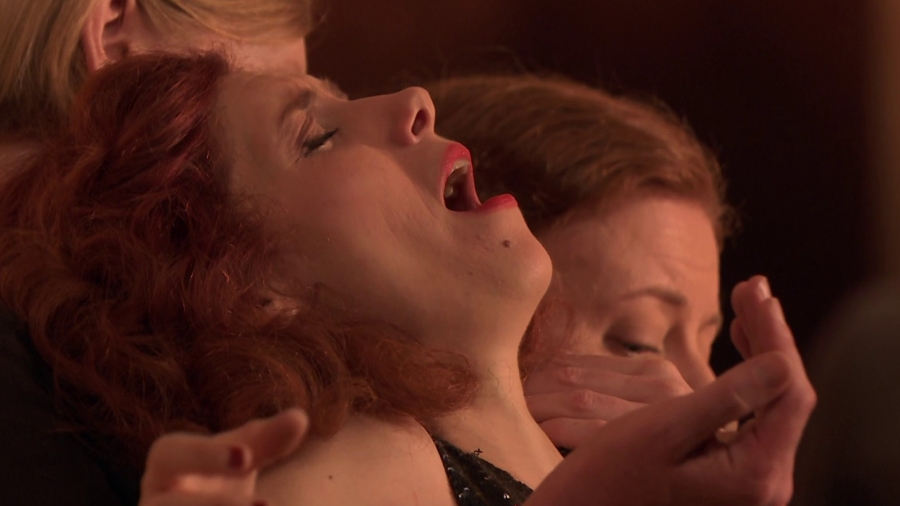
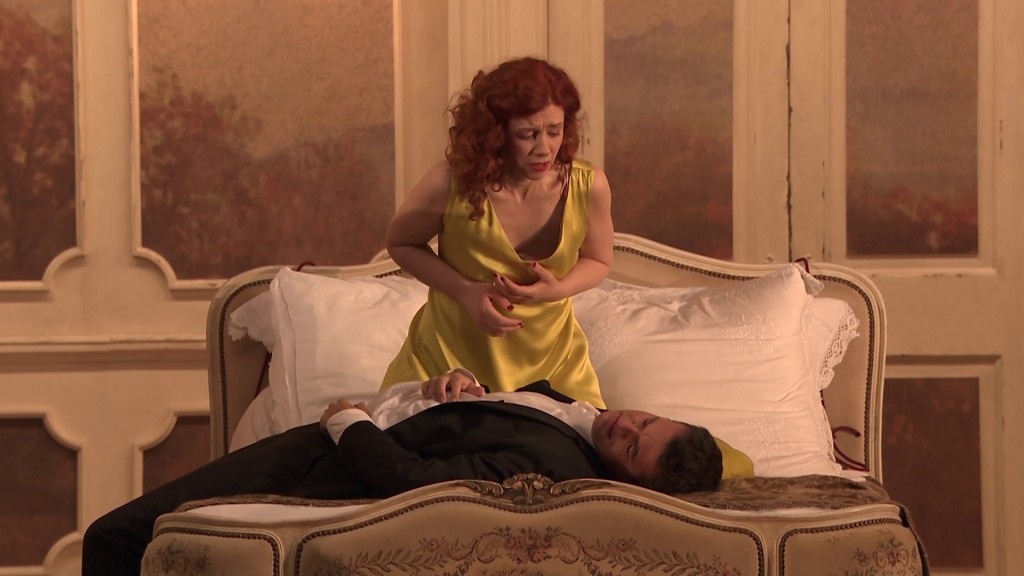

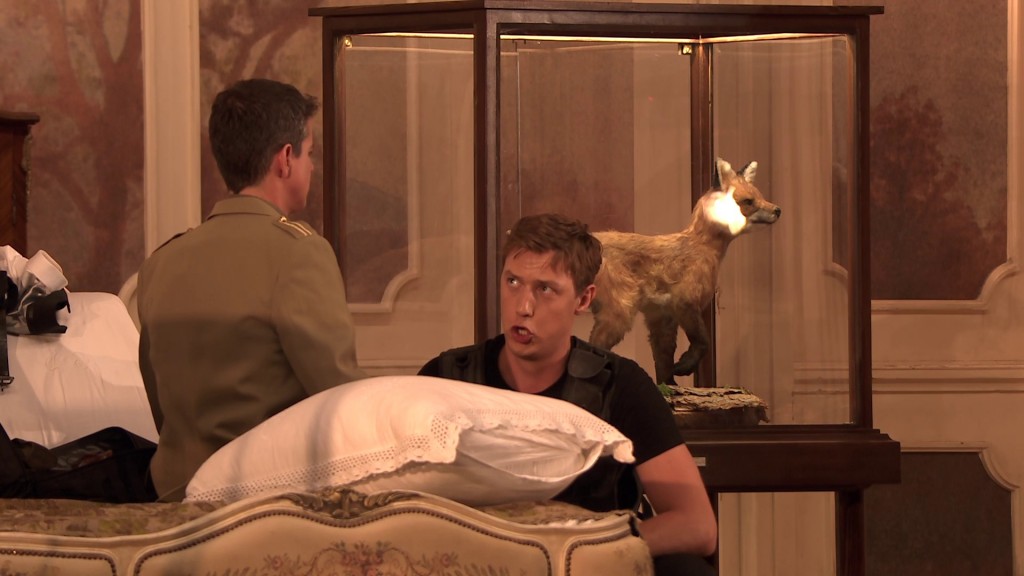
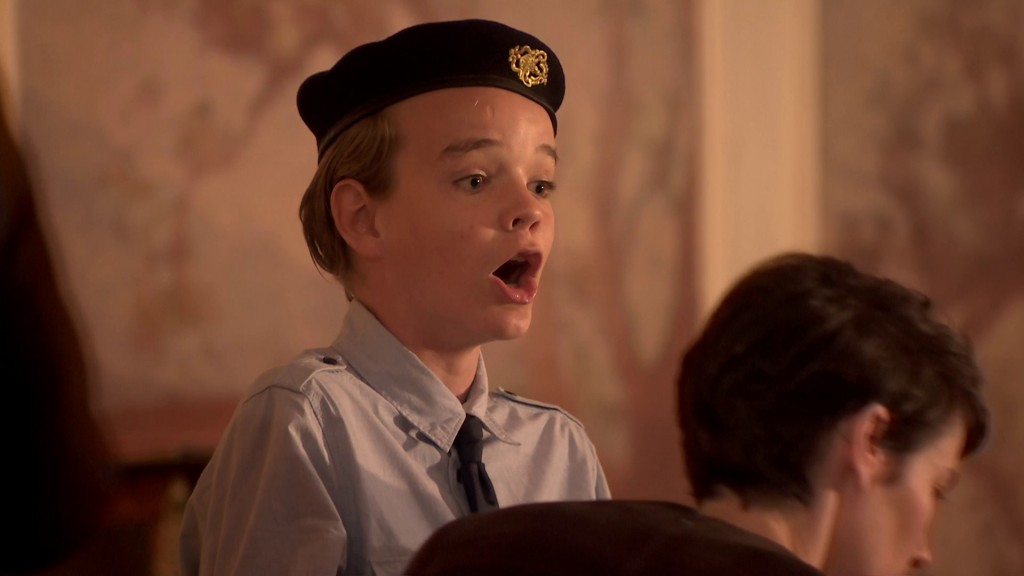
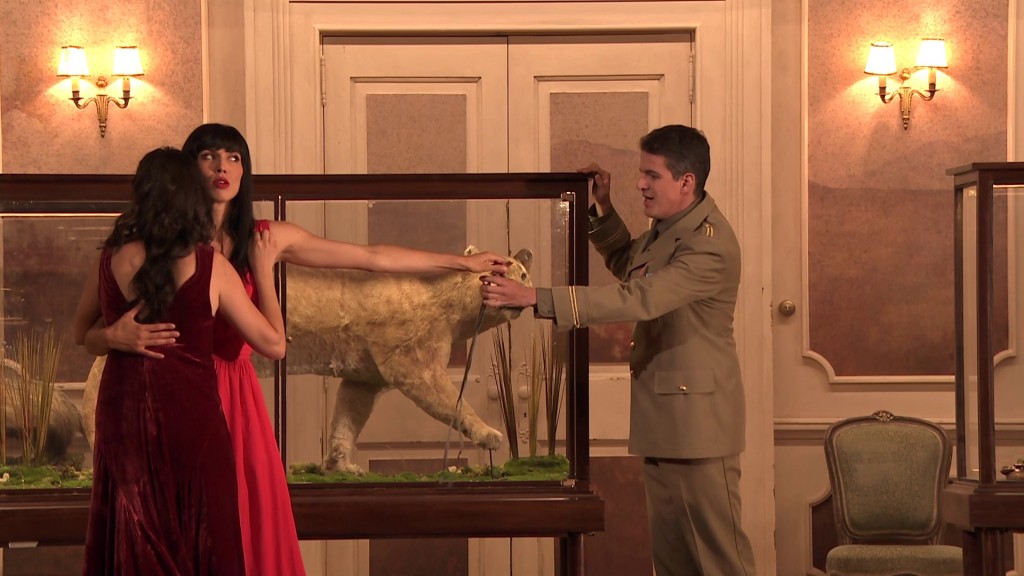

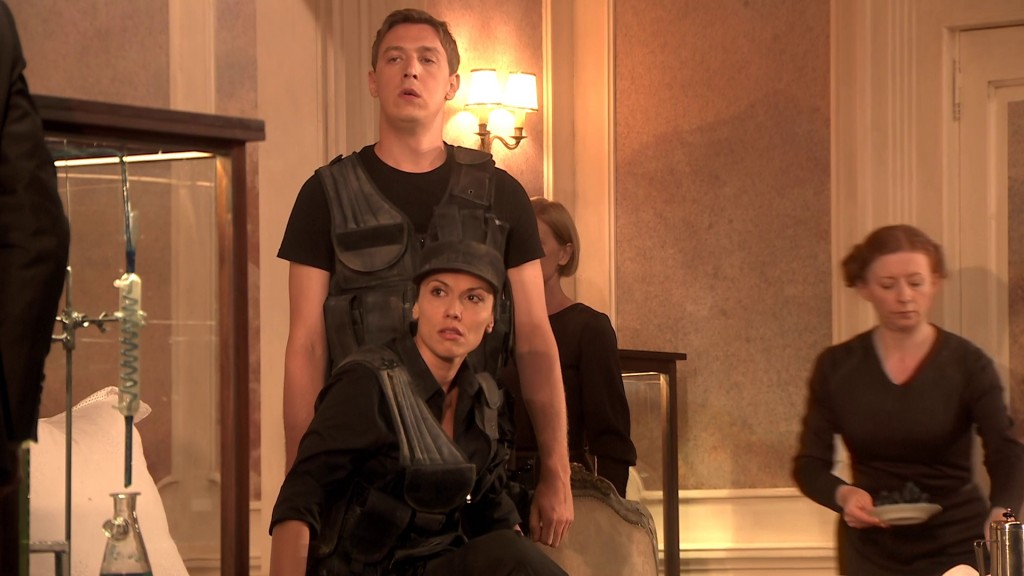
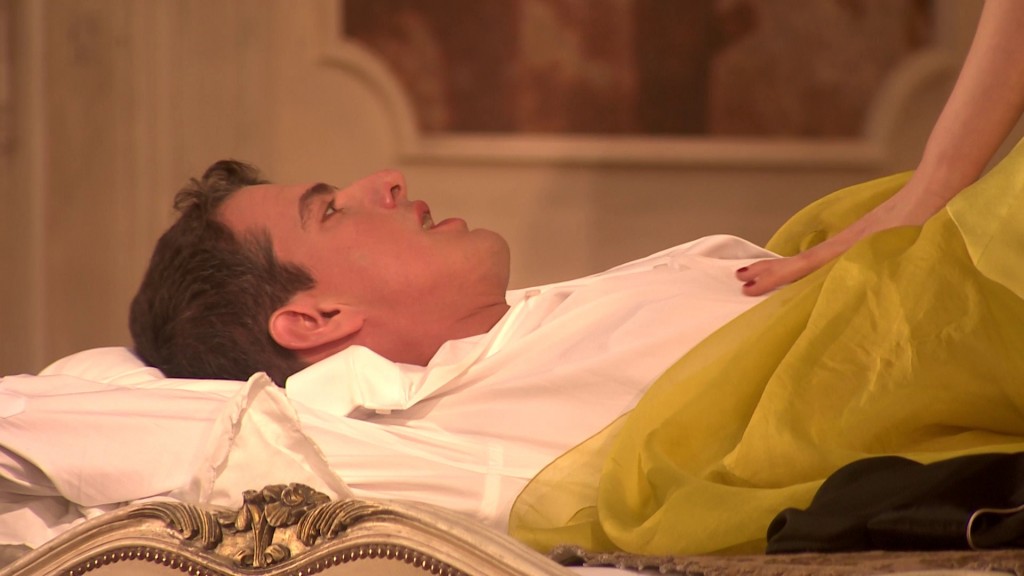
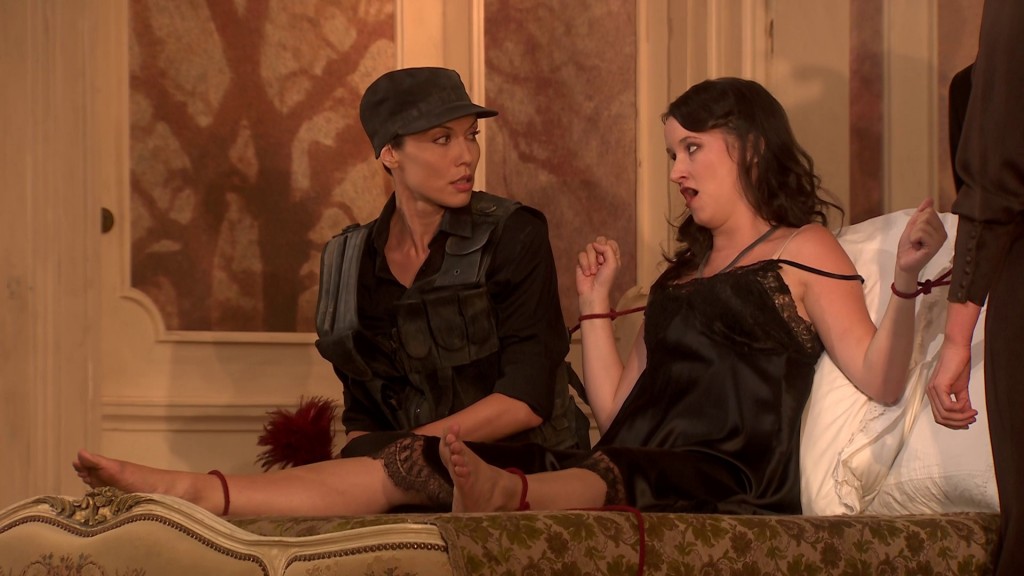

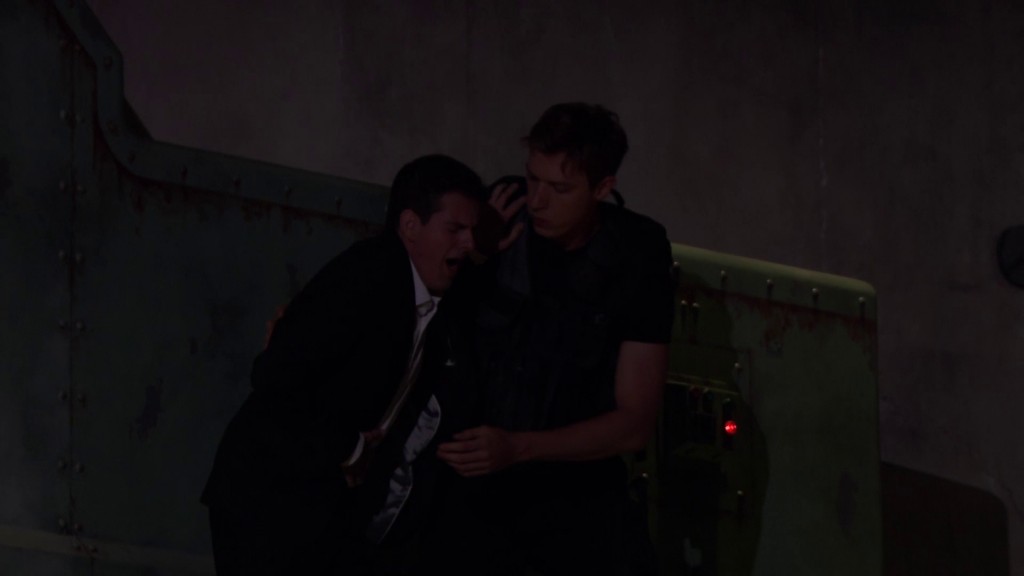
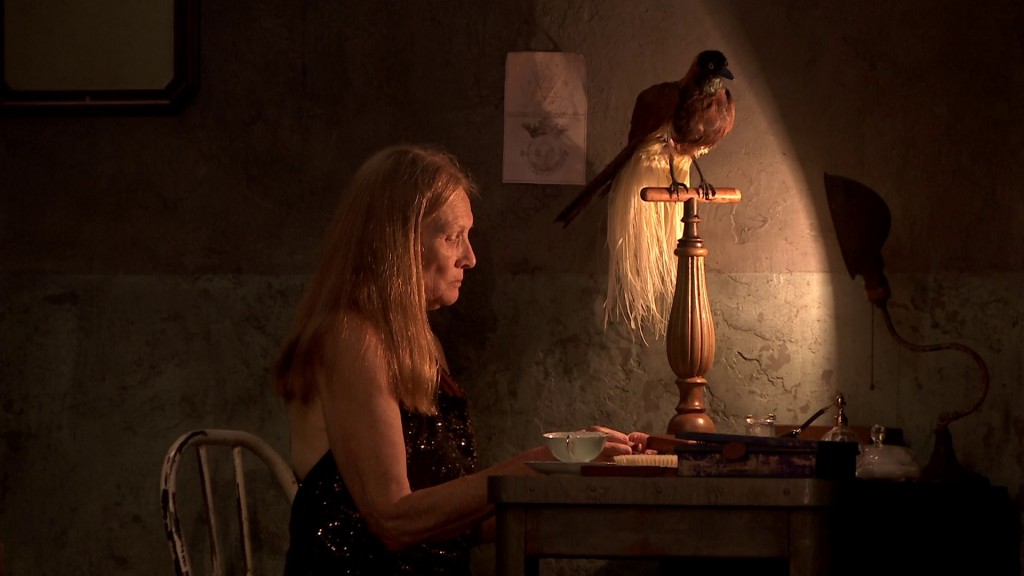
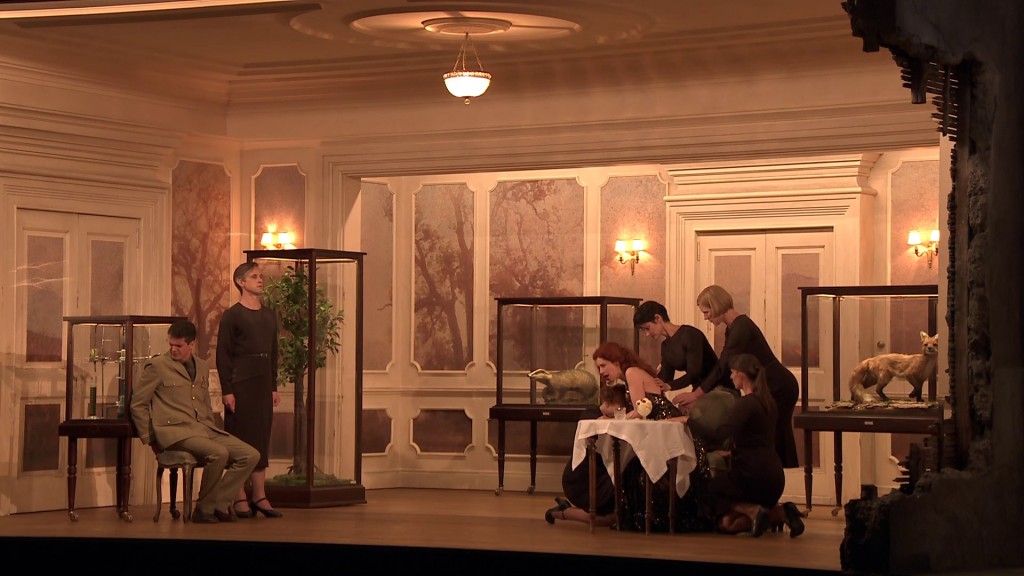
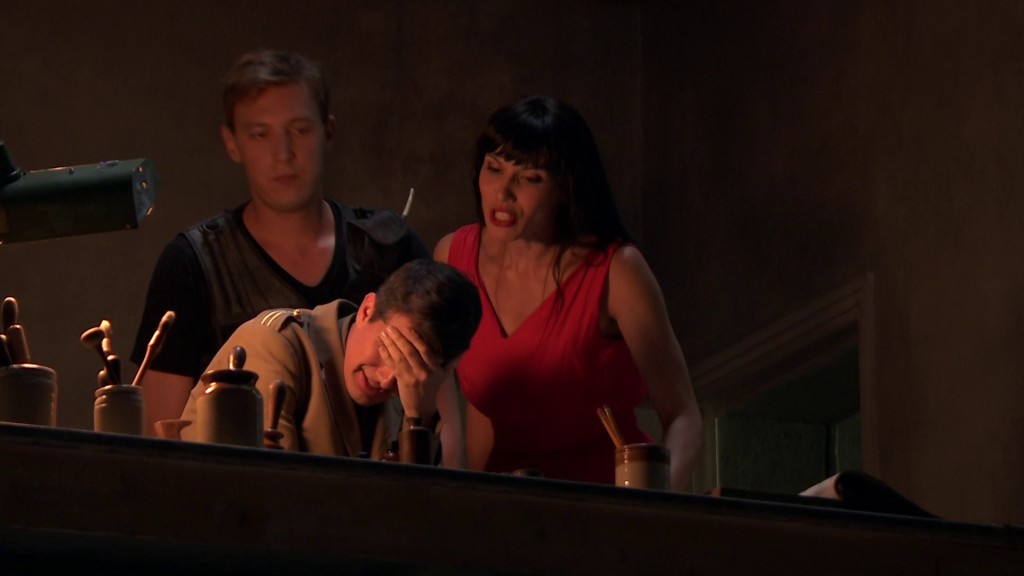
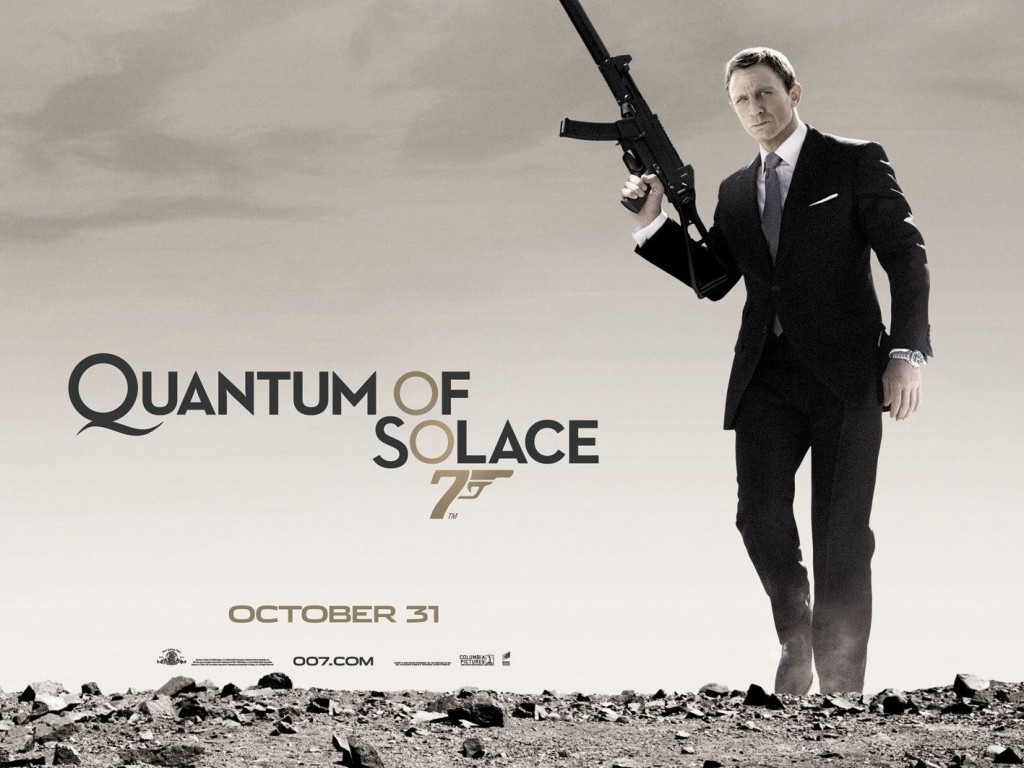


[…] If I am allowed to talk about Alcina, I tend to get wordy. This is why I thought it would be a good thing to make a separate post about the opera, the music, and the characters, and detach it from the review I wrote about the performance at the festival in Aix-en-Provence. […]
[…] Pingback: Bewitched but bothered – Alcina in Aix-en-Provence | Philippe Jaroussky Completely Unofficial […]